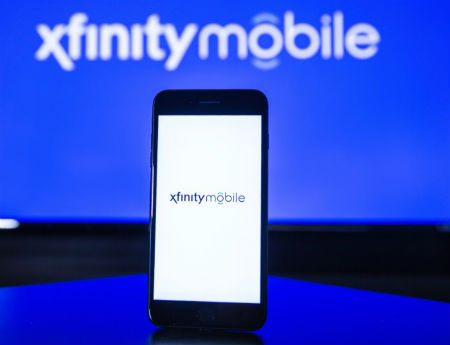Comcast, Charter Benefit From Scuttled Sprint-T-Mobile M&A Talks: Analyst
The smarter way to stay on top of the multichannel video marketplace. Sign up below.
You are now subscribed
Your newsletter sign-up was successful

Comcast and Charter are “arguably winners in the dissolution of the Sprint-T-Mobile deal,” MoffettNathanson analyst Craig Moffett said in a new report that ponders the wide-ranging implications of the scuttled M&A talks.
RELATED: Sprint, T-Mobile Scrap Merger Talks
Moffett held that Comcast and Charter will benefit in part to the improved competitive dynamics that they’ll see with respect to their respective MVNO deals with Verizon. Comcast launched its offering, Xfinity Mobile, in May, and Charter plans to introduce a mobile service of its own sometime in 2018.
“A four player market is good news, on the margin, for Comcast and Charter, albeit less because of ‘deal opportunity’ for either one than because it creates a more hospitable dynamic for the wireless MVNO with Verizon,” Moffett wrote.
Without a Sprint-T-Mobile merger, “relations between Cable and Verizon are likely to be stronger,” he added, wondering if the MVNO agreements could “eventually blossom into a broader alliance” that wouldn’t lead to an outright merger due to the significant regulatory hurdles it would encounter.
Though Charter has not announced pricing and packaging for its coming service, Moffett believes that Comcast may have found a niche with its approach, and “raised some eyebrows” when it announced late last month that Xfinity Mobile had tucked away more than 250,000 customer lines in its first quarter of operation.
RELATED: Comcast Goes Wide With Xfinity Mobile
The smarter way to stay on top of the multichannel video marketplace. Sign up below.
Moffett noted that the Big 4 U.S. mobile providers (AT&T, Verizon, Sprint and T-Mobile) managed to add 1.4 million subscriber net adds in Q3, meaning that Comcast contributed about 18% of the industry’s net adds.
Comcast offers two plans for Xfinity Mobile (unlimited data for $45 per month per line, up to five lines); and By the Gig for $12 per GB of shared cellular data across all lines on an account each month), and has said that most of its mobile customers are gravitating to the By the Gig option.
Comcast is complementing its MVNO with its own WiFi network, and could further augment its wireless data capabilities by tapping into the CBRS band opportunity.
RELATED: CBRS Spectrum to Open Windows of Opportunity for Cable Ops
“Comcast appears to have landed on a potentially significant unmet market need, and as such, their offering could turn out to be rather disruptive,” Moffett noted. “Their pricing attacks an important profit pool for the carriers: light users who pay average prices for far-below-average usage.”
He suggested that Comcast’s $12 per GB plan is “almost certainly profitable” for the MSO, estimating that Comcast is paying less than $8 per GB.
Moffett said Comcast’s early success is “bad for the optics” regarding sub growth rates for the Big 4 mobile providers (though Verizon sees some wholesale revenue gains from Xfinity Mobile), and could put more downward pressure on pricing.
Though Verizon gets some benefit, via the wholesale revenue gains coming way of Xfinity Mobile, “[f]or the other three operators, there is, of course, no corollary offset; Comcast is simply an unadulterated negative.”
Amid other implications from the scrubbed merger talks, Moffett believes that Verizon and T-Mobile are best positioned to benefit.
Moffett upgraded T-Mobile to “buy,” and raised the price target from $69 to $73, and maintained a “buy” rating on Verizon, raising the price target from $50 to $51.
He also maintained a “sell” rating on Sprint, and cut the price target to $2, from $6, noting that the dissolution of a T-Mobile merger means that Sprint will forgo its share in the synergies, which the firm “conservatively” estimated at $30 billion net.
Moffett also expects that Sprint will also adopt a less promotional pricing posture in order to balance the competing priorities of debt, service, and network investment. “Sprint’s path forward is treacherous,” he said.
Moffett currently has a “sell” rating on Dish and a target price of $37. The end of merger talks between Sprint and T-Mobile create “marginally higher probability of a deal” for Dish (mostly as a source of spectrum), but sees network construction and the emergence of a five-player market as a more likely eventuality. Another possible scenario, he said, is a partnership between Dish and Sprint or T-Mobile, which would reduce Dish’s network construction costs.
